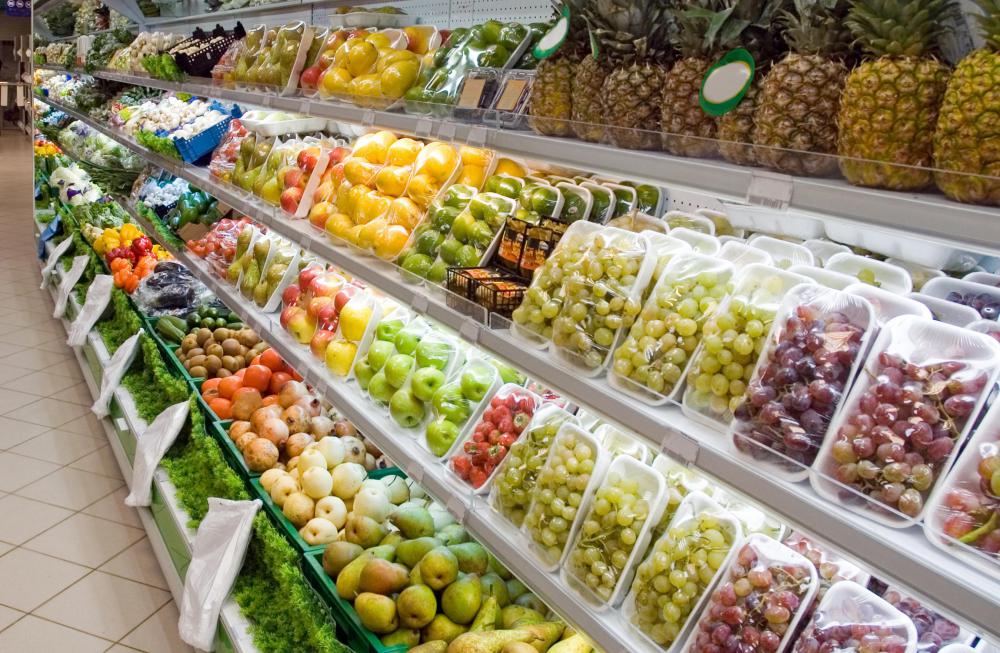At DelightedCooking, we're committed to delivering accurate, trustworthy information. Our expert-authored content is rigorously fact-checked and sourced from credible authorities. Discover how we uphold the highest standards in providing you with reliable knowledge.
Does Dehydrated Fruit Have Less Nutritional Value than Fresh Fruit?
Dehydrating fruit does change some aspects of its nutritional value, but this doesn't make it necessarily better or worse than fresh fruit. The process of removing the water in the fruit concentrates both nutrients and calories, meaning that a person would consume more nutrients and calories in a comparable portion of dried fruit as in fresh fruit. This also means that a portion of dehydrated fruit is typically higher in fiber and antioxidants than one of fresh fruit. The processes used to dehydrate fruit have a large impact on the vitamin and mineral content, but fruit that is gently dried without chemicals often retains much of its vitamin and mineral content.
Calories and Sugars

Commercially dried fruit is usually treated with preservatives and sweeteners, which changes the nutrition content. Even fruit that is not treated with sweeteners is going to be sweeter than non-dried fruit, since the removal of the water concentrates the sugar in the fruit. The removal of the water also makes the fruit lighter, meaning that a person eating the same amount in weight of dried fruit as a piece of fresh fruit would be consuming more calories and sugar. This can be good for hikers or athletes who need lots of quick energy from a lightweight, portable food, but it can be problematic for dieters. Generally speaking, one half cup of dried fruit is considered to be equivalent to one cup of fresh fruit.

For this reason, you should always differentiate between fresh and dehydrated fruit when tracking the food you eat. Most meal plans emphasize the impact of calories and sugar, so misrepresenting the type of fruit you eat will give you an inaccurate calorie count.
For instance, diet apps, including, keto diet apps, require you to put in accurate information about your meals to provide useful advice on meal planning and food choices. This information will help you maintain a healthy diet.
Fiber and Antioxidants

Dehydrating fruit doesn't change its fiber content, but the change in weight makes a comparable portion of dried fruit has more fiber than a piece of fresh fruit. This makes it very effective for relieving constipation, and it can also be helpful in lowering cholesterol. Dried figs, raisins, apricots, and dates are particularly high in fiber. The drying process also concentrates the antioxidant content of fruit. Cherries, apples, figs, and blueberries are particularly high in antioxidants.
Vitamins and Minerals

The way that fruit is dehydrated greatly effects its vitamin and mineral content. A lot of commercially dehydrated fruit is pre-treated with sulfur dioxide or sodium sulfite to keep it from getting brown during the drying process, which preserves vitamin A and vitamin C in the fruit, but can get rid of thiamine. Heat in the dehydrator as well as exposure to air can lower fruit's vitamin C content. Boiling fruit before dehydrating it can help preserve carotene, which is broken down by the body into vitamin A, but does lower the vitamin C content. Soaking or boiling before dehydrating can also cause some minor loss of minerals, but fruit generally retains its mineral content well during the drying process.
Dried Fruit vs. Juice and Freeze-Dried Fruit

Dehydrated fruit is generally a much better source of nutrition than fruit juice. Though juice does retain many of the vitamins and antioxidants of fresh fruit, dried fruit is much higher in fiber and typically has less sugar than most juices. Freeze dried fruit has much less water than dehydrated fruit, but is similar in terms of nutrients. It is usually more shelf stable though, and lasts longer under proper storage conditions. It also has a different texture, and is lighter than dehydrated fruit.

When considering the nutritional value of dehydrated fruit versus fresh fruit, it's essential to seek expert guidance, with a simple search for "dietitians near me" online. They can provide valuable insights into how the dehydration process affects the nutrient content and help you make informed choices based on your specific health goals.
AS FEATURED ON:
AS FEATURED ON:




















Discussion Comments
Please does one fresh apple have the exact same calorie content as one of the exact same apples dehydrated?
Does anyone know the answer and can explain?
Great info. Thanks!
What if the food is badly charred?
Post your comments